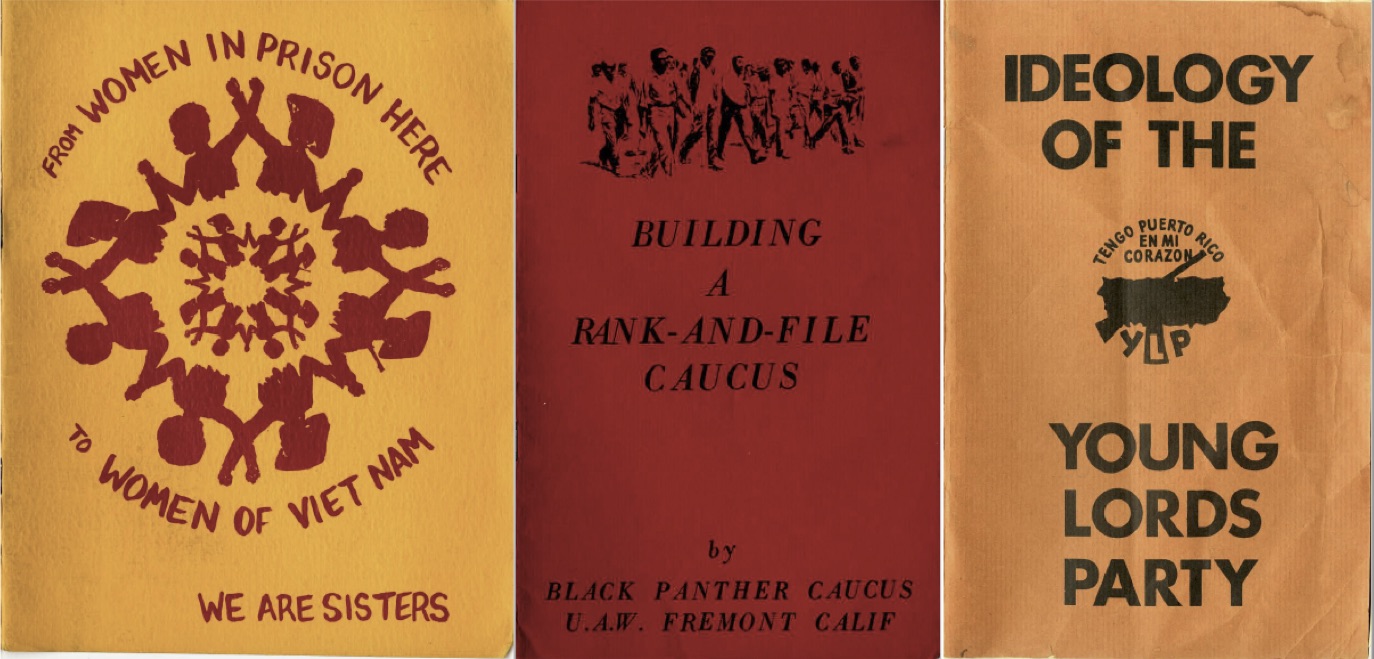
When
Sunday, February 4, 2018-
Sunday, May 6, 2018
3:00 PM to 5:00 PM
The 70s were a turbulent decade for the left, both in the U.S. and worldwide – from the student protests against the U.S. invasion of Cambodia in 1970, through the Nicaraguan and Iranian revolutions.
This reading group, designed to accompany Interference Archives’ Finally Got The News exhibition, will explore some of the key liberation movements of the 1970s U.S. through the lens of written documents included in the exhibition, as well as excerpts from publications by the activists and intellectuals who led, chronicled and theorized about them. This is not a nostalgia trip, but an opportunity to critically examine some important and often-overlooked threads of our collective history in order to inform our own politics of liberation in the 21st century.
Our reading will be divided into three four-week sessions, using key protest events as entry points into the larger issues that they embodied. In each session, we will try to put the social movements we examine into dialogue with each other — as they generally were at the time. Often, individuals became politicized through one specific protest or movement, which then opened up an array of questions and issues, so there were a lot of flows of people and ideas between and among movements.
Reading sessions will take place at Interference Archive on the Saturdays listed below, from 3-5pm. Please email info@interferencearchive.org if you would like to participate, so that we can provide access to reading material.
The reading group is a collective undertaking, and we welcome those whose entry in radical politics came long after the events we are studying as well as veterans of those movements.
Part One: (February 4, 11, 18 and 25)
We’ll start with the Dodge Revolutionary Union Movement (DRUM), the role of race in the formation of the U.S. working class, and trade union radicalism as an alternative to business unionism. We will then read about the prisoners’ revolt and brutal put-down at Attica, looking at the naked exercise of militarized state power and the growth of the prison-industrial complex.
Part Two: (March 11, 18, 25, and April 1)
Next, we turn to the American Indian Movement and the 1973 stand-off at Wounded Knee, echoes of which resonated through the encampments at Standing Rock. We’ll then continue to talk about the interaction of social movements and the state while looking at the New York City fiscal crisis, the politics of austerity, grassroots responses, and anti-authoritarianism.
Part Three: (April 15, 22, 29, and May 6)
Thinking broadly about decolonization, we’ll look at how the 1975 Portuguese revolution and the independence struggle Cape Verde and Guinea-Bissau provide an opportunity to explore the relationship between colonialism and national liberation. The 1979 Sandinista revolution in Nicaragua opens a window into Latin American revolutionary struggles and the challenges to U.S. imperialism in former client-states. We will then delve into radical feminism and its sometimes uneasy relationship with Marxism and socialism, and we’ll continue our discussion of sexual politics in the gay and lesbian movements.